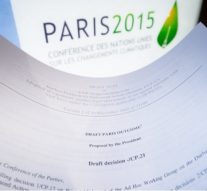
The EU and the climate diplomacy: what challenges for COP26
External Relations 29 October 2021Estimated time of reading: ~ 3 minutes
From October 31st to November 12th, journalists and analysts believe that the two partners UK and Italy, will host the world’s last chance to finally get climate change under control.
Indeed, the COP26 in Glasgow will be the culmination of the work done by the UK Presidency and at the global level over the years 2020 and 2021.
Progressing the negotiations will be at the heart of the summit. The Presidency will accelerate urgent actions to secure several core goals: for example, the global net zero by mid-century and keep 1.5°C within reach; to help communities and natural habitats to adapt to the impacts of climate change; and to bring countries, businesses, civil society, and citizens together to deliver on the Paris Agreement.
Since the first US withdrawal from the COP15 decided by the Trump Administration, the EU found itself in the opportunity of filling the void. The “green hype” is raging in Brussels and from September 27th to October 17th, EU Delegations and embassies of EU Member States hosted events aimed at fostering dialogue on climate change, while encouraging further actions in this field. The EU wants to showcase both ambition and action with its EU Green Deal, its Climate Law and the latest set of policy proposals (Fit for 55).
As it has been often described, the climate crisis is one of the greatest challenges of the 21st century and the geopolitical consequences are evident. Obviously, the repercussions on the global foreign policy agenda are significant and therefore there is a serious need for climate diplomacy.
These challenges not only threaten people’s livelihoods and harm development but touch crucial geopolitical aspects at the heart of international politics: sovereignty, territorial integrity, and access to natural resources. In addition, the climate crisis can cause significant while uncertain impacts on human security, therefore increasing the risks of conflict and instability in several region of the world. In conclusion, it is evident that addressing the challenges and the side effects of climate change requires a globally strategic and coordinated response, and this is what climate diplomacy stands for.
Today experts are still discussing about a commonly accepted definition of climate diplomacy.
When it comes to find a sound definition of the term, the European Commission finds out four strands of climate diplomacy at the political level: committing to multilateralism in climate policy, particularly to the implementation of the Paris Agreement, addressing implications of climate change on peace and security, accelerating domestic action and raising global ambition, enhancing international climate cooperation though advocacy and outreach.
In other words, climate diplomacy takes advantage of climate change for pushing other foreign policy objectives such as peacebuilding or relaunching multilateralism. Climate diplomacy also means mainstreaming climate initiatives in the cooperation, also bilaterally, with partners worldwide – in diplomatic dialogues, public diplomacy and other political instruments.
Inevitably, different regions visualize climate diplomacy from different angles. Livelihood and development issues, and a sustainable, green economy can be a core business, although their relevance and their ability to contribute to a universal solution may vary according to the regional context.
As we recalled before, the 2021 conference, hosted by the UK in Glasgow, will be the 26th meeting of the Parties, hence COP26. United Nations climate change conferences are among the largest international meetings in the world. The negotiations between governments are complex and involve officials from every country in the world as well as representatives from civil society and the global news media.
Furthermore, activity at a COP takes place in two different zones – the Blue Zone and the Green Zone. If the Green Zone is opened to the public (workshops, initiatives, awareness events, etc.), the Blue Zone is for people registered with the UN body tasked with coordinating the global response to the threat of climate change – the United Nations Framework Convention on Climate Change (UNFCCC).
In the Blue Zone are part national delegations, working for the United Nations and related organizations and agencies or members of the media or non-profit observer organization.
In the Blue Zone, delegates from countries meet for both formal negotiations and informal consultations.
Written by: Giovanni Asmundo
Submitted on: 27.10.2021.


